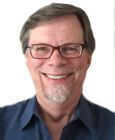
In 1965, Elie Wiesel, Holocaust survivor, writer and Nobel Peace Prize winner, found himself in a small synagogue somewhere in the Soviet Union. His eyes were glued to the rabbi, an old man with a seemingly lifeless face; a face that symbolized for Wiesel the isolation and oppression of Soviet Jews. This experience led him to write a play, entitled Zalmen or The Madness of God, in which another rabbi, interrogated by a Soviet inspector, faces the greatest challenge to his people’s faith and destiny.
At one point, trying to trick the rabbi, the inspector asks:
What side are you on?
To which the rabbi answers:
I am on the side of prayer.
The inspector presses:
What is prayer: Question or answer?
To which the rabbi replies:
Both. Question for whoever believes he has found an answer. Answer for whoever struggles with the question.
I read this play for the first time over forty years ago when I was a young pastor in a country parish. I was not that many years removed from my earliest experiences with the discipline of prayer. In those days I rose often before dawn, to pray for lists of people, well over a thousand. This went on for several years and even today I “lift up” people through prayer, no longer convinced of any direct influence, yet feeling that such love may matter somehow.
More often than not, today my prayers are hardly prayers in the traditional sense, at all. Often I merely sit in silence, listening to my breath and to the sounds of the world around me. This is more gratitude than anything else. Gratitude for being here in this world, gratitude for people I love, gratitude that sometimes I can make a difference.
As I’ve gotten older, the kind of prayer alluded to in Wiesel’s play has brought me a different kind of comfort. You see, when I was young I was confident that I had found the answers. I knew what I believed, grounded as it was in oft repeated creeds and vows. These answers helped crowd out unsettling questions. But by the time I graduated from seminary and certainly by the time I left the parish, these answers were in tatters; they no longer spoke to my life and to what I saw around me. For the last forty years I have been left with questions. For many of those years I believed this was a failing on my part, a deficit, a weakness. In time, though, I have come to see questions as the filaments that link me to that larger Something that some call God.
The answers I have found along the way have also been different. Chief among them is that I am very small and that there is something much greater that connects us all, something that is everlasting. As answers go, this is enough to bear my questions.
David B. Seaburn is a writer. His most recent novel is Parrot Talk. An upcoming novel, Gavin Goode, will be released in June 2019. All of his novels are available on Amazon. Seaburn is also a retired marriage and family therapist, psychologist and Presbyterian minister.


